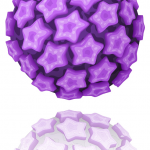At Dr. Reisler’s office we pride ourselves on offering our patients the most advanced preventive care available. We now offer our patients the FDA-approved high-risk digene HPV DNA test. This test is a highly sensitive viral test used in conjunction with a Pap test for cervical cancer screening in women aged 30 and older. Persistent infection with high-risk human papillomavirus (HPV) is the primary cause of cervical cancer. A few important things to know about HPV and cervical cancer screening: Most women (80%)will have HPV at some point during their lives, but very few will develop cervical cancer.
- Fortunately, in most people, the body’s immune system suppresses the HPV virus before it causes problems. It is only when the infection persists that it can cause cells to become abnormal. By catching persistent infections while they are relatively early in their development, abnormal cells can be detected and removed before they become cancerous. This is why periodic testing for HPV is so important.
- The Pap test looks for abnormal cell changes on the cervix that occur as a result of persistent high-risk HPV infection. The HPV test looks for the presence of HPV DNA.
- When used together, these tests can show with nearly 100% certainty that you do not have cervical disease. Women who test negative for high-risk HPV, and have a normal Pap test, have virtually no risk of developing cervical cancer before their next scheduled visit.
- Knowing your HPV status helps you and your provider determine how often you should be screened. Early detection of pre-cancerous cell changes is the key to preventing cervical cancer.
- Your HPV status is not a reliable indicator of your and your partner’s sexual behavior. HPV can lie dormant in cervical cells for many years before becoming an active infection. There is no way to know when, where, and from whom HPV was acquired, and because HPV is so easily transmitted, anyone who has ever been sexually active is at risk.

